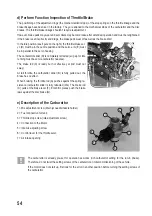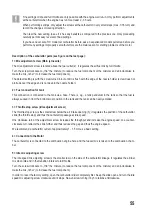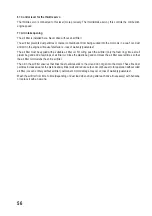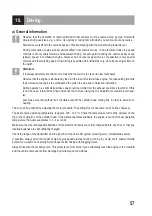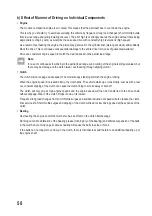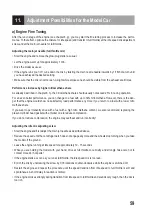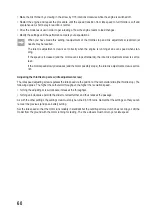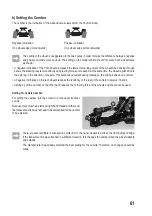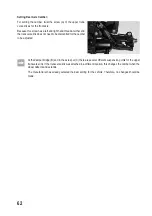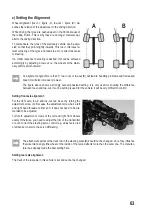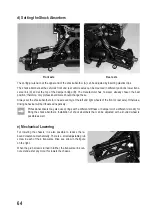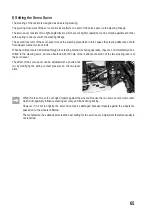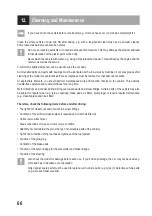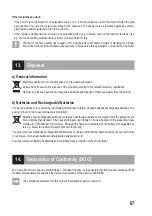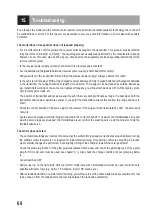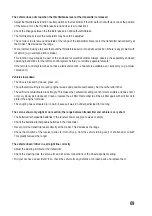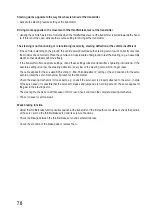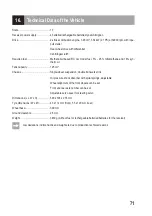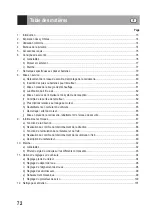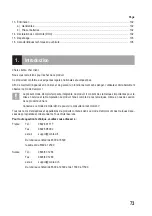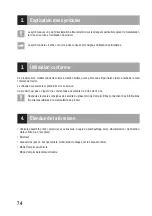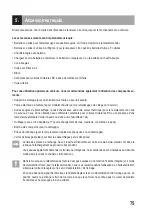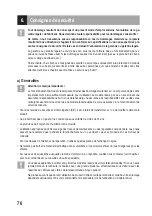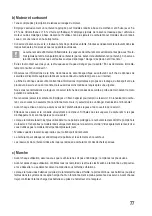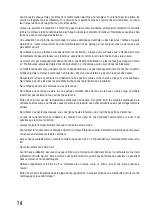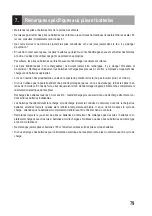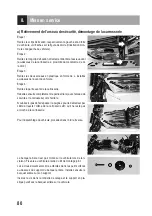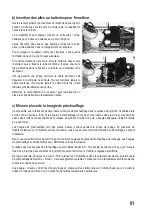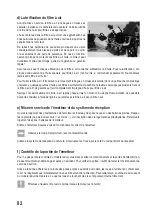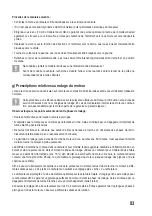
68
15. Troubleshooting
Even though the model and the remote control system were built with the latest available technology, there can still
be malfunctions or errors. For this reason, we would like to give you some information on how to deal with possible
problems.
The model doesn’t respond (or does not respond properly)
• For 2.4 GHz remote control systems, the receiver must be taught to the transmitter. This process may be referred
to by the terms of „Binding“ or „Pairing“. The teaching process usually was performed by the manufacturer already;
however, it can, of course, also be done by you. Also observe the separately enclosed operating instructions for the
remote control system.
• Is the receiver power supply correctly connected to the receiver and activated?
• Are the batteries/rechargeable batteries (receiver power supply) and/or transmitter empty?
• Did you switch on the transmitter first and then the receiver power supply? Always observe this order!
• Is the vehicle too far away? With a fully charged receiver battery and fully charged batteries/rechargeable batteries
in the transmitter, the range should be at least 50 m and more. The range can be decreased by outside influences,
e.g. transmitters working on the same or an adjacent frequency, (e.g. Bluetooth devices or WLAN hot spots), proxi-
mity to metal parts, trees, etc.
The position of transmitter and receiver aerial to each other very strongly influences range. It is best when both the
transmitter and receiver aerial are vertical. If you point the transmitter aerial at the vehicle, the range will be very
short!
• Check the correct position of the servo plugs in the receiver. If the plugs are inserted rotated by 180°, the servos will
not work.
• Are the servo and speed controller plugs connected to the correct channel? If, however, the throttle/brake servo and
steering servo plugs are swapped, the throttle/brake lever controls the steering servo, and the wheel controls the
throttle/brake servo.
The motor does not start.
• The carburettor settings are incorrect. Observe that the carburettor is already correctly preset upon delivery; turning
the setting screws therefore is not required for initial commissioning. Only during or after the breaking in process
must carefully changes be performed. Even slightly turning of the setting screws will have large effects!
• Check the glow plug function. If the glow plug was replaced with a new one, check the glow plug type. Only a glow
plug for RC model cars must be used; see chapter 8. c). Also check the charge condition of your glow plug batte-
ry.
• Are all fuel lines OK?
• Did you fuel up on the right fuel? Only fuel for RC model cars with nitromethane/oil must be used. No function is
possible with outer fuels (e.g. petrol, 1:25-mixture, fuel for RC planes, etc.).
• After extended downtime or a initial commissioning, you will have to pull the cable started rope several times for fuel
to be socket in from the tank observe the fuel line between the tank and carburettor).
Summary of Contents for 490150
Page 142: ...142 ...
Page 143: ...143 ...

